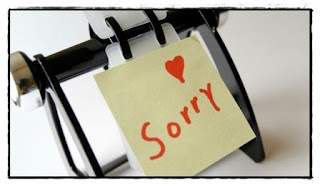Previously I’ve posted about bad relationship chemistry and how we tend to gravitate towards negative relationship patterns because we love the familiar, even if it’s unhealthy! Often, we believe we deserve the unhealthy because of our own lifetraps. A lifetrap is like a pair of glasses through which we see a distorted view of the world. But because we’ve always had this pair of glasses, we think our distorted view is how things really are. This distorted view relates to how we look at ourselves, how we perceive others and relationships and the world as a whole.
For example: Betty grew up in a home where her dad loved her but never showed it. He was a quiet man who mostly tinkered in his workshop or read his newspaper. When she tried to get his attention, he would get irritated with her. Betty’s lifetrap glasses could make her world look like this:
· Self: I’m boring and not interesting enough to get attention from men. My emotional needs are irritating. I’m likely to be rejected if I make my needs known.
· Others/relationships: I can’t expect other’s to want to meet my emotional needs. I should not bother others with my needs.
· The world: Rejecting; cold.
Betty therefore believes there is something wrong with her because she was not enough to warrant attention from her dad. Her needs are not as important as her father’s needs and she believes that if she asks for emotional needs to be met, she will be rejected. This then just confirms that there is something wrong with her. She has learnt that love means that your emotional needs are not as important as what the other person wants. Asking for emotional nurturance or guidance will mean you will probably be rejected as if you’re irritating. This lifetrap tells her that this must mean that there is something wrong with her needs and emotions...and with her as a person.
These are the lifetraps of Emotional Deprivation and Shame/Defectiveness.
How does this influence the type of relationships Betty gets involved in? You’ve probably guessed. Because she thinks her emotional needs are less important than those of others, she suppresses her needs. She gets attracted to strong, quiet men, just like her dad. They make her feel safe, because they’re not emotional or insecure. However, they also don’t like it when she gets “uncontrolled” and emotional. They tell her she is “needy” when she wants emotional reassurance or nurturance, just like her dad did. They sometimes look at her like she’s crazy when she expresses strong needs or emotions – just like her dad.
Betty has fallen into a relationship pattern of lifetrap chemistry. She believes her emotional needs are not valid and therefore she is attracted to men who treat her in a way that confirms her beliefs; men who are rejecting of emotional needs and emotionally distant like her dad. To avoid being rejected she suppresses her needs and emotions and focuses on being sensitive to his needs, maybe in the hope that if she’s giving enough he will return the favour. Of course, he has his own lifetraps and he never learns from her. The more emotionally demanding she becomes, the more rejecting he becomes. This dynamic confirms all her beliefs: I’m not allowed to have needs. My needs are not OK. I will be rejected by others if I’m real and vulnerable.
It really is a vicious circle.
It is interesting, however, how much sexual chemistry is involved when there are really toxic lifetrap chemistry going on. Nowadays, being attracted to a partner or having sexual chemistry seems to be a deciding factor with partner selection. Meanwhile, back at the ranch, this chemistry is often based on lifetrap chemistry. Bad chemistry that will create more trouble than it’s worth.
This is my pet cringe: new very-much-in-love couples who radiate lifetrap chemistry. I feel like the prophet of doom when I recognise it and I usually keep quiet. But it doesn’t feel great when I later see the emotional turmoil involved in this relationship. Painful, actually because I know that it can be prevented or resolved. Either way requires confronting the self and taking responsibility for your own beliefs and actions. That’s also difficult, which is why most people choose to carry on with the familiar pattern. Better the devil you know, hey?
Do you have a pattern of lifetrap chemistry relationships? What has been the effect on your life? What beliefs about yourself and relationships drives these bad chemistry relationships?


















